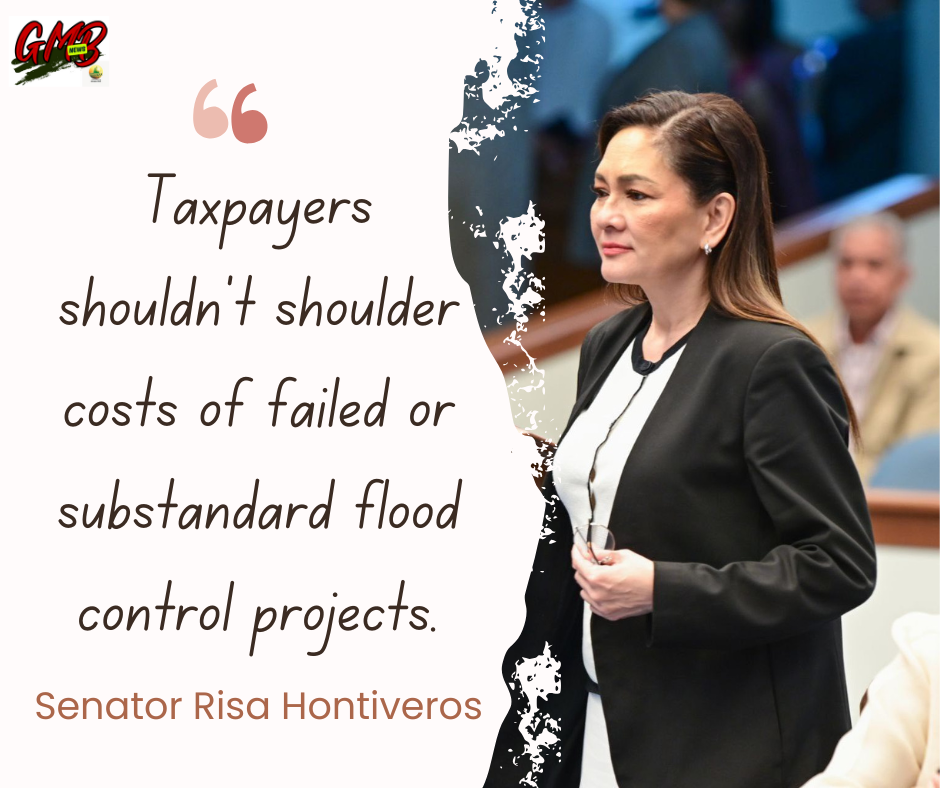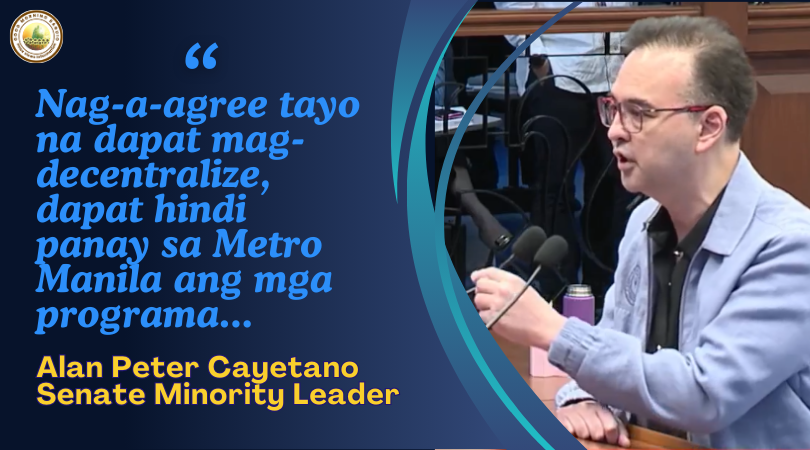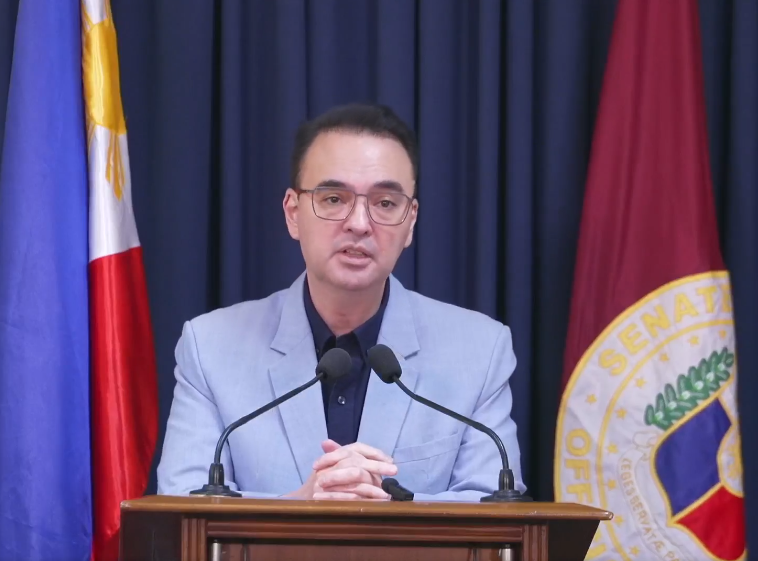
DPWH: Taxpayers won’t pay twice for failed flood projects

MANILA, Philippines — Officials from the Department of Public Works and Highways (DPWH) have confirmed to Senator Risa Hontiveros that taxpayers should not pay twice for failed or substandard flood control projects, and that contractors should instead shoulder these costs.
During the Senate Blue Ribbon Committee probe on anomalous flood control projects, Hontiveros quizzed DPWH officials on existing policies covering warranties on substandard or failed projects, saying that the burden of fixing these projects shouldn’t be placed on taxpayers.
“Gusto ko lang pong i-remind lahat at ang department, na hindi dapat taongbayan ang gumastos ng doble kapag palpak yung flood control project,” Hontiveros said.
(I just want to remind everyone, and the department, that the people should not have to spend twice when a flood control project fails.)
In response, DPWH Undersecretary Maria Catalina Cabral said that current rules impose various periods for warranty on infrastructure projects, wherein any defect or irregularity that may be observed “should be corrected by the contractors, at no cost to government.”
If corrections are not timely made, she said, erring contractors will not be allowed to claim final billing, and retention money will not be released to them, among other penalties.
Cabral then mentioned to Hontiveros that flood control projects, which are considered semi-permanent structures, have a warranty period of five years, while permanent structures like bridges have a warranty period of 15 years.
“So within the five years, kapag po nasira o nakitang substandard or ghost, it should not take five years to see or unsee a ghost project na flood control,” Hontiveros stressed.
Cabral also said that the DPWH will support Hontiveros’s proposed “1-strike” or “0 tolerance” policy for contractors involved in fraudulent or glaringly substandard flood control projects or other vital infrastructure projects.
Likewise, the DPWH official positively responded to Hontiveros’s proposed “Doble gastos, doble danyos” (double expense, double penalty) policy, in which contractors responsible for ghost or substandard projects will be required to pay twice for construction and repair costs.
Hontiveros later said that she will follow up on DPWH’s pronouncements, so that contractors responsible for anomalies will not escape accountability.
Recent Posts
- Benguet opens 2026 Coffee-Cacao Quality tilt
- Cordillera regional sports meet opens in Benguet
- BYD Sealion 5 taxi fleet debuts in Cordillera
- SM City Baguio welcomes Lunar New Year
- 30,000 attend Philippine International Hot Air Balloon Fiesta in Clark
Sections
- Accidents & Emergencies
- Ads & Marketing
- Agriculture
- Anniversaries
- Awards & Recognition
- Baguio's Embrace
- Banking
- Barangay Affairs
- Bazaars
- Business & Economy
- Calligraphy
- Celebrities
- Commercial Developments
- Community Hub
- Concerts
- Consumer Affairs & Entrepreneurship
- Corporate
- Corporate Social REsponsibility
- Creative Economy
- Cycling
- Digital Arts
- Diplomacy & Official Visits
- Diversity & Inclusion
- Education & Youth
- Entertainment
- Environment & Sustainability
- Esports & Streaming
- Events
- Fashion & Beauty
- Festivals
- Film & Media Arts
- Food & Dining
- Golf
- Governance & Policy
- Government & Public Assets
- Health & Wellness
- Holiday Events
- Home & Interior Design
- Indigenous Peoples Affairs
- Infrastructure
- Inspirations
- Jobs & Employment
- Law Enforcement
- Leadership & Appointments
- Legal Affairs
- Legislation
- Literature
- Local Government
- Local Heritage
- Martial Arts
- Milestones
- Mining
- Movies
- Olympics
- Pageants
- People & Personalities
- Performing Arts
- Pertempto
- Poetry
- Politics
- Power & Energy
- Promotions
- Public Health
- Public Safety & Security
- Public Welfare
- Real Estate
- Regional Updates
- Scripture
- Sports
- Technology & Digital Services
- Telecommunications & Digital Policy
- Tennis
- Theatre & Musicals
- Traffic & Transport
- Tributes
- Trustworthy Road
- Urban Development
- Visual Arts
- Weekly Horoscope
- World
Related Articles


Cayetano pushes rural development, LGU aid in 2026 budget
Cayetano urges major amendments to the 2026 budget, pushing rural development, railway revival, and direct LGU support. … Read More >Cayetano pushes rural development, LGU aid in 2026 budget

Cayetano decries delay in flood control corruption probe
Senator Alan Peter Cayetano criticizes the slow probe on flood control corruption, urging DPWH and COA to ensure transparency. … Read More >Cayetano decries delay in flood control corruption probe
Share